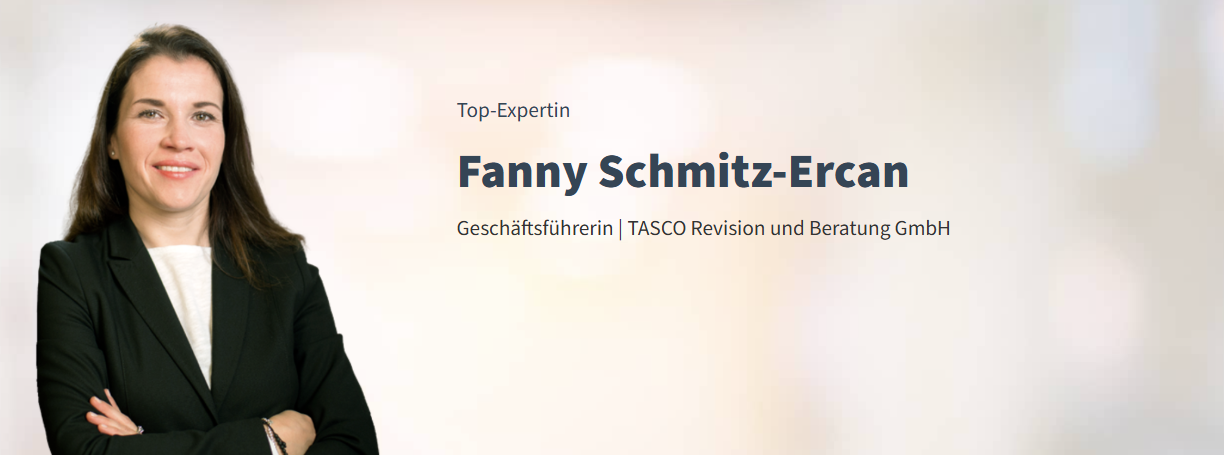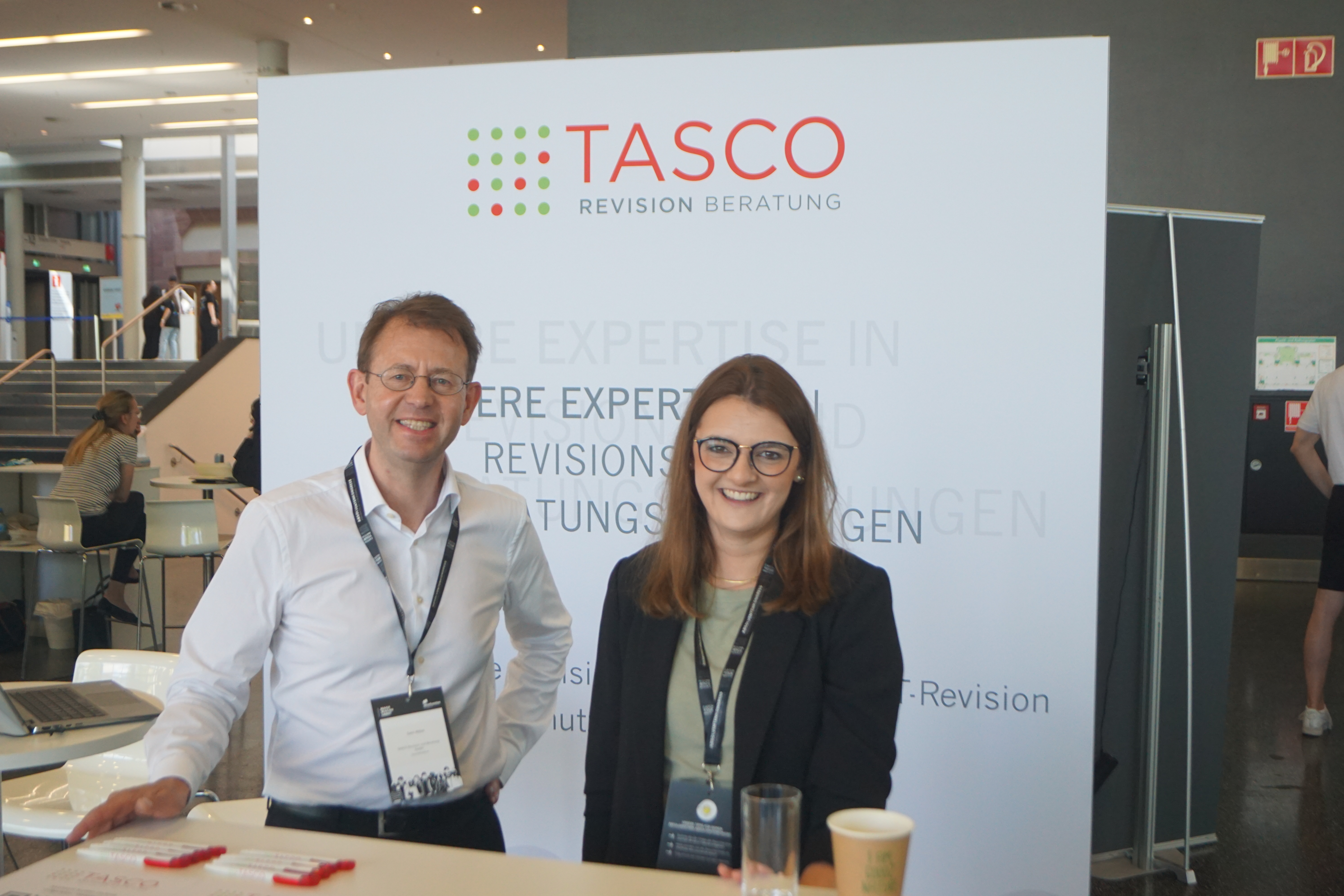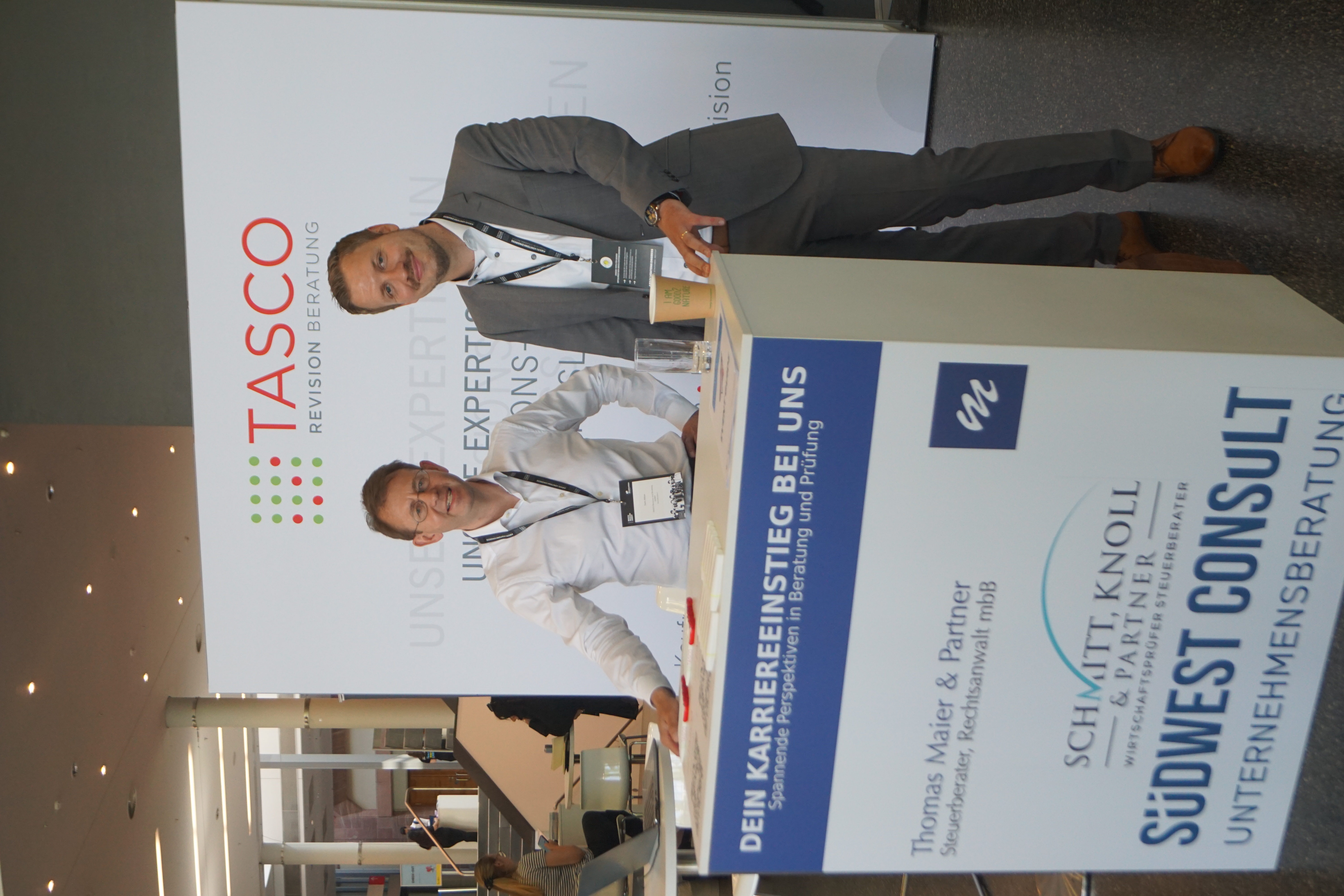Nächster Termin: 24. – 25.09.2025 (ortsunabhängig) Unsere Geschäftsführerin Fanny Schmitz-Ercan wird in Zusammenarbeit mit Haub + Partner das Seminar „Der professionelle Revisionsbericht“ durchführen.
Der Revisionsbericht ist die „Visitenkarte“ jeder Prüfung. Statt „Zahlenfriedhöfe“ zu produzieren, müssen Prüfungsprozesse und -ergebnisse präzise und verständlich dargestellt und adressatengerecht aufbereitet werden. Darüber hinaus dient der Revisionsbericht als Werkzeug, um klare Maßnahmenempfehlungen zu geben. Daten und Fakten müssen so vermittelt werden, dass diese vom Management und den geprüften Einheiten verstanden und als Entscheidungsgrundlage verwendet werden können. Doch viele Interne Revisoren erleben das Schreiben eines Prüfungsberichts immer wieder als unangenehme Pflicht.
In diesem Seminar lernen die Teilnehmer die wichtigsten inhaltlichen, kommunikativen und visuellen Qualitätsmerkmale eines professionellen Revisionsberichts kennen.

Wie im letzten Jahr hat TASCO auch 2025 wieder am Absolventenkongress in Frankfurt teilgenommen – der kostenfreien Karriereveranstaltung für Young Talents.
Die Veranstaltung fand am 26. Juni 2025 von 10 bis 16 Uhr im Forum Messe Frankfurt (Eingang LEA, Ludwig-Erhard-Anlage) statt. Zahlreiche Interessierte nutzten die Gelegenheit, unsere Teams kennenzulernen und sich über spannende Einstiegsmöglichkeiten bei TASCO zu informieren.
Offene Stellen in diesem Jahr:
Wir freuen uns darauf, Sie persönlich kennenzulernen und gemeinsam Ihre Karriere zu gestalten!


Nächster Termine: 27. - 28.03.2025 (ortsunabhängig) Unser Audit Manager Benjamin Bender wird in Zusammenarbeit mit Haub + Partner das Seminar „Der professionelle Revisionsbericht“ durchführen.
Der Revisionsbericht ist die „Visitenkarte“ jeder Prüfung. Statt „Zahlenfriedhöfe“ zu produzieren, müssen Prüfungsprozesse und -ergebnisse präzise und verständlich dargestellt und adressatengerecht aufbereitet werden. Darüber hinaus dient der Revisionsbericht als Werkzeug, um klare Maßnahmenempfehlungen zu geben. Daten und Fakten müssen so vermittelt werden, dass diese vom Management und den geprüften Einheiten verstanden und als Entscheidungsgrundlage verwendet werden können. Doch viele Interne Revisoren erleben das Schreiben eines Prüfungsberichts immer wieder als unangenehme Pflicht.
In diesem Seminar lernen die Teilnehmer die wichtigsten inhaltlichen, kommunikativen und visuellen Qualitätsmerkmale eines professionellen Revisionsberichts kennen.
Am 30.09. und 01.10.2024 führte unser Audit Manager Benjamin Bender in Zusammenarbeit mit Haub + Partner das Seminar „Der professionelle Revisionsbericht“ durch – mit großem Erfolg und einem regen Austausch unter den Teilnehmern!
Die Kernthemen des Seminars umfassten:
- Der Revisionsbericht in der Prüfungspraxis
- Adressatengerechte Aufbereitung von Prüffeststellungen und -Maßnahmenempfehlungen
- Einsatz von Künstlicher Intelligenz (KI) bei der Berichtserstellung
- Qualitätsmerkmale eines professionellen Prüfungsberichts.
Ein Highlight war auch der Gastbeitrag von Jürgen Kreuz, der spannende Einblicke in die KI-gestützte Prüfung mit der Software PRISM 4 AUDIT der Firma SECaaS.IT gab.
Die Seminarteilnehmer aus den Branchen Kapitalverwaltungsgesellschaften, Versicherungen, Krankenkassen, Lotterien sowie eines globalen Automobilherstellers trugen zu einem lebhaften und interessanten Austausch bei. Ihre praxisnahen Einblicke haben das Seminar zusätzlich bereichert und spannende Diskussionen ermöglicht.
Herzlichen Dank an alle Teilnehmer sowie an die Mitwirkenden für zwei intensive und erkenntnisreiche Tage! 👏
In Zusammenarbeit mit Haub + Partner fand am 30.09. - 01.10.2024 das zweitägige Seminar zum Thema „Der professionelle Revisionsbericht“ in Frankfurt am Main statt.
Das Seminar wurde von unserem Audit Manager Benjamin Bender geleitet.
Der Revisionsbericht ist die „Visitenkarte“ jeder Prüfung. Statt „Zahlenfriedhöfe“ zu produzieren, müssen Prüfungsprozesse und -ergebnisse präzise und verständlich dargestellt sowie adressatengerecht aufbereitet werden. Darüber hinaus dient der Revisionsbericht als Werkzeug, um klare Maßnahmenempfehlungen zu geben. Daten und Fakten sollten so vermittelt werden, dass sie vom Management und den geprüften Einheiten verstanden und als Entscheidungsgrundlage verwendet werden können. Viele Interne Revisoren empfinden jedoch das Schreiben eines Prüfungsberichts als unangenehme Pflicht.
Im Rahmen des Seminars wurde vermittelt, mit welchen Tools eine moderne und überzeugende Berichterstattung gelingt. Es wurde erläutert, wie man sich auf das Wesentliche konzentriert und die Kernaussage verständlich kommuniziert. Die Teilnehmenden lernten die adressatengerechte Aufbereitung von Prüffeststellungen und Maßnahmenempfehlungen sowie die Qualitätsmerkmale eines modernen Prüfungsberichts kennen.
Konnten wir Ihr Interesse für die Teilnahme am Seminar zum professionellen Revisionsbericht wecken? Eine Anmeldung zum Seminar ist bereits möglich.
Page 1 of 20

